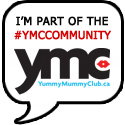by David Niblack
“We have someone new!”
The leader’s voice broke through the speakers. I had crept in late, hoping no one would notice me.
“Stand up and tell us your name and where you go to school!” the speakers boomed.
“My name is David and… I don’t go to school— I’m homeschooled.”
“What was that?”
“I said, I am homeschooled—I am taught at home.” I replied.
The leader squinted, trying to place me. After a pause, the voice resumed. “OK, cool! Did you say `homesachooled?’ Let’s give an applause!” 
After the lesson, the assembly broke apart, drifting into little groups bubbling with laughter and exclamations that rose over the background music. I knew nothing of Jennifer Knapp and had not been to the high school football game. I was clueless of the upcoming prom or the latest air-filter add-on for 4×4 enthusiasts. My peers spoke a language that was nearly incomprehensible to me. Quietly, I escaped out the side door.
I didn’t realize at the time that what was causing my awkwardness in the popular youth culture would build a sanctuary for my faith. As a pioneer homeschooler I was “weird” to my public school counterparts, but little did I know I was on the front edge of a movement that would give a radically new freedom for young people to live out their faith.
Homeschooling has provided my generation with a greenhouse for their faith. Greenhouses are different than conservatories. In conservatories, plants grow all their lives indoors because they are never able to withstand life outdoors. Greenhouses serve a different purpose. The gardener places the plants he wants to grow strong into the greenhouse where fragile limbs and roots can grow form. When the plant is strong, the gardener can confidently move it outside where the plant will withstand even the harshest conditions.
After high school, I attended a liberal arts Christian college in southern California where I met Nathan. He was a greenhouse homeschooler. Raised in a logging town in northern California, I could tell he was more comfortable in the woods than in the trendy sunglasses-and-palm-tree life on campus. He wore plaid shirts, a big belt, and wire-rimmed glasses. His straight-leg blue jeans ended right above his ankle, creating an awkward gap between the hem of his pants and the top of his hiking boots.

I assumed he was a “sheltered homeschooler” until the day I slid my meal tray next to his in the cafeteria and spent half an hour hearing his story. Politics were his passion, and he had worked in elections and interned at the state capital. He had a vision of life that transcended the whims and trends of youth culture. Beneath his unassuming exterior was an articulate man of courage who as a freshman in college was already having a godly political influence in our state. I saw that he was out of tune with the popular youth culture; he simply played in a different orchestra.
The “independence” of today’s adolescent is a misnomer. So often breaking away of the emerging generation is not fresh independence but simply a transfer of the old dependence; from family and parents to the popular dictates of the youth culture. Few are free to be who they really are, and I had met no one as free as Nathan. As I listened, I realized that his plaid shirt and too-short blue jeans were not a mark of oddity, but a badge of freedom. This young man was free. Free to wear what he wanted, free to act as he wanted, and most importantly, free to live his faith unhindered by the pressures of the popular youth culture.
The next spring I discovered how God used this same freedom in my life. I was invited to speak to the staff at a summer camp the week before camp started. The staff lounge was quiet, and my hands were trembling as I awkwardly opened my Bible to give the message. Camp counselors intimidated me; they were often the loud, popular types, full of energy, jokes, and spiritual savvy.
I was nervous, but started speaking. Stillness came over the room and I noticed the counselors’ expressions change. Their faces are unforgettable; the deep look in their eyes, brows furrowed in thought, and I could tell something was stirring a deep spiritual hunger. I closed with a prayer. The room was quiet and hushed. “So that is what they are teaching you at Bible school, eh?” one of them asked me. What a hard question.

I only said, “Yes, I have some very good classes and I’m learning a lot.” But the answer was hollow. I wish I could have told him that in fourth grade my parents took me out of school and taught me at home because I was bored with the tedious pace at school. I wish I could have told him what life was like growing up in an environment set apart from the world of my peers. I wish I could have told him how, when camping with the Boy Scouts, I was so shocked at the locker-room jokes and stories of the other boys that I buried my head in my sleeping bag clutching my little New Testament close to hide my tears for friends that did not know God.
I wish I could have told him how difficult it was getting older and reaching the place where I was starving for an identity, rejecting the identity of my parents, and yet unable to find one with my peers or my school and being driven to find the purpose of who I am in God. I wish I could have told him what it was like being homeschooled in a house with no TV and being clueless of Seinfeld, Friends or Jim Carrey, and instead discovering Dickens, Shackleton, and John Piper.
I wish I could have told him how it felt to hear the stories of high schoolers – their stories of proms, of dating, of honor classes – and to go home and do school work that night with my parents. I wish I could have told him what it meant to have a life where God had drawn me to live away from what was popular so that I could learn to listen to Him long enough to find the freedom of being different. Homeschooling may have made me “weird” but it gave me the chance to find joy in the voice of God. This is what gave me the heart to preach; Bible school gave me the tools to make it possible.
At a volume unparalleled in history, our world screams with distractions into the lives of young people. Under the mask of “be independent!” and “be yourself!” is a machine-like pressure to conform to cultural norms set by TV, advertising, and peer pressure. Add to this the educational “success-at-all-costs” philosophy of a materialistic worldview and my generation is driven to live lives of shallow busyness that produce spiritual deafness to the voice of God.
We have loud worship music, dynamic youth speakers, and engaging cell groups, but where is the place of silent isolation where the heart can yearn for the presence of God? The explosion of homeschooling in America, with now over a million participants, can create that sacred ground, and is doing so in the lives of hundreds of young people in my generation.
But this explosion doesn’t mean homeschooling is a quick-fix fad. In fact, the trend is thousands of years old. King David was homeschooled. His brothers attended the King’s the best generals. David was taught by the bleating of sheep. But between the lectures of sheep and the whisper of the Judean wilderness winds, David learned to hear something else. He learned to hear God.
He grew so strong in the greenhouse of the lonely pastures, that when he went to the battlefield not even Goliath was a match for his fibers of faith. The author of the best-selling devotional book of all time did not attend a prestigious Bible school and was not accepted by his peers. But he had learned in the wilderness what it meant to hunger and thirst after God.
Two years later I was invited to speak in the youth group. I preached my heart, and to my surprise the kids listened. Eyes wide open, brows furrowed, and that same yearning depth dancing across their faces. I later overheard one of the kids talking. “Whoa, we normally go to youth group to have fun, but he made it so real it was scary…” His words were satisfying. I felt I had connected. Almost like a mini homecoming. I chatted for a while before I left. And this time I used the main doors.
This article was republished with permission. David Niblack is a homeschool graduate and now a Chicago area pastor. You may read more about David Niblack at his website: http://davidniblack.com/site/?p=21





















That’s quite a powerful story he tells there. This was an interesting post, thank you.
I like how he compares homeschooling to a greenhouse. I, too, was homeschooled. Although only for high school, but being homeschooled I was able to devote much more time to my studies and not be as tempted by all of the other stuff – I graduated at 15.